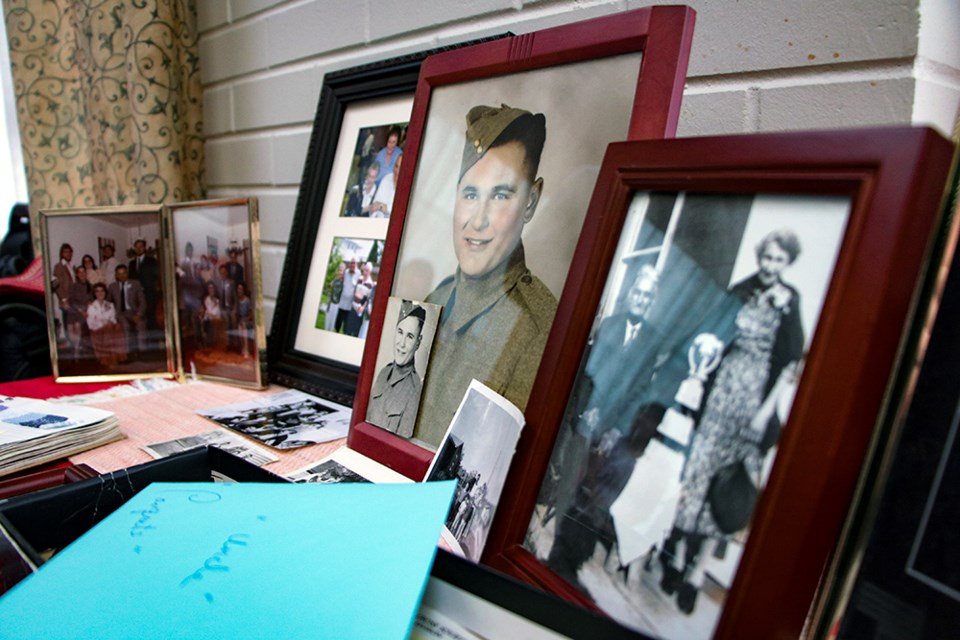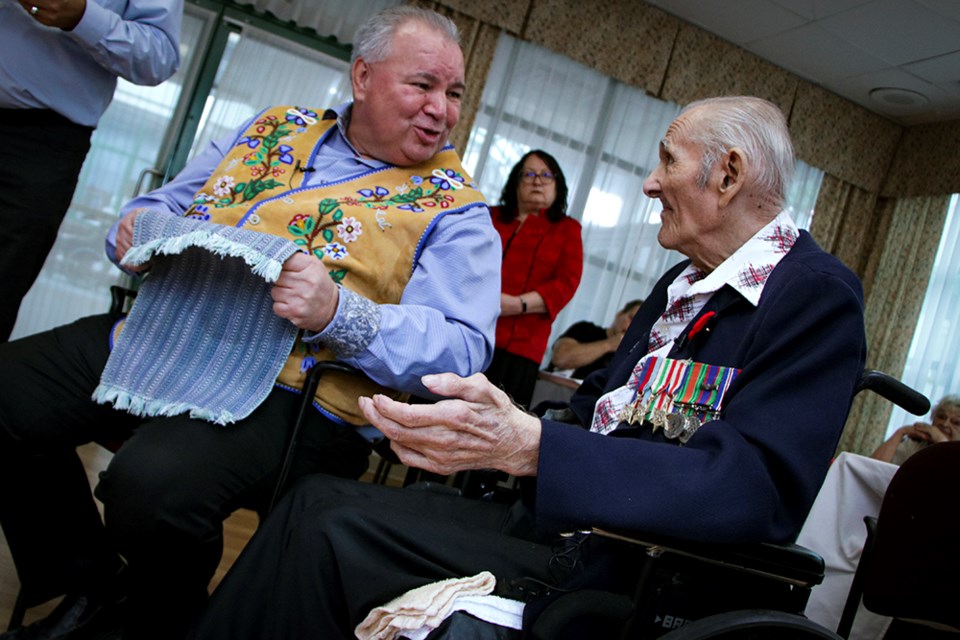As war consumed Europe, Burnaby resident Ernest Letendre says there was “no question” about whether he would enlist in the Canadian military.
He was 19 when he was sent overseas to fight for the Allies in the Second World War. Nearly 80 years later, the 97-year-old Métis man is finally getting his due from the federal government through a $30-million settlement reached with Métis communities in Canada.
The settlement has been at least two decades in the making, according to Métis National Council’s president David Chartrand, who said he’s worked to advance a deal with four different prime ministers, including Justin Trudeau, who committed to the settlement prior to forming government.
It was a historic, long-awaited acknowledgement of the sacrifices made by Métis people as they offered themselves to the deadliest war in modern history and the betrayal from the federal government upon their return.
“It was a fight for a country that was still treating them with some racism and discriminatory ideologies, but they still went,” Chartrand said, adding that their racist treatment largely vanished for Métis soldiers – until they returned.
“The Métis were basically told to go back to your traplines, go back to where you came from. You used to be a fisher; go back and fish. Go back to the North where you came from. So it’s really a hostile environment they found themselves in, and they don’t understand why.”
Chartrand said they’ve found 18 living Métis veterans from the Second World War, and they’re hoping to find more – though even the youngest veterans would be in their 90s by now.
Letendre, a resident of the George Derby Centre, was surrounded by extended family as he received a $20,000 cheque from Chartrand.

A nearby table was filled with memorabilia and photographs from wartime and the years since. Newspaper clippings, including poems he liked from his time in the war, felt like they might crumble in your hands, but the photos displayed next to them maintained the vitality of Letendre’s youth.
As he came to realize the size of the cheque, Letendre’s aged features gave way and that same vitality shone through a smile that stretched across his face.
Letendre has since lost his voice to a stroke, and he was unable to speak at the event, but a journal offered a glimpse of his life in the military.
In one entry, Letendre wrote of joining the invasion of Sicily on his birthday, July 16. On Sept. 3, 1943, they invaded mainland Italy.
“That was bad. It was really scary – rough. I lost so many friends,” he wrote. “I saw so much misery that I decided to have fun. I didn’t care if the colonel didn’t like me because I could be dead tomorrow.”
At one point, though it’s unclear when, Letendre suffered a head injury from shrapnel, and he was sent to an English hospital to recover, but he eventually returned to the war – in one entry, he wrote of liberating Belgium.
After sacrificing so much for Canada in the Second World War, Chartrand said treatment from the federal government stung Métis veterans.
“Some actually went back to seek help for eyeglasses or dental, and basically the young bureaucrats of the day … basically told them ‘do you think you deserve it? Do you think you fought hard enough?’ Attitudes like that. It was really heartbreaking,” Chartrand said.
“It hurt them mentally.”



